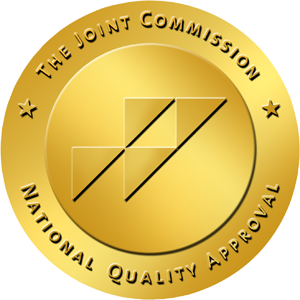Infusion Therapy: Benefits, Types and Services
 Infusion therapy involves medicine being administered through a needle or catheter into a person’s veins. It is prescribed when a patient’s condition cannot be treated effectively through oral or pill medications. Infusion therapy also may refer to situations when medication is injected deep into the muscles and the membranes surrounding the spinal cord.
Infusion therapy involves medicine being administered through a needle or catheter into a person’s veins. It is prescribed when a patient’s condition cannot be treated effectively through oral or pill medications. Infusion therapy also may refer to situations when medication is injected deep into the muscles and the membranes surrounding the spinal cord.
Benefits of Home Infusion Therapy:
- Patients are comfortable in their own, familiar surroundings, often recovering faster, with fewer complications.
- It is more cost-effective for both the patient and hospital.
- It may eliminate the need for hospitalization entirely.
- It enables the patient to continue routine activities in the home and enjoy the support of the family unit throughout the duration of their therapy.
Types of Infusion Therapy
Total parenteral nutrition (TPN) therapy is a method of feeding that provides intravenous nutritional support for patients who cannot ingest food. Diseases and conditions that may require TPN therapy include:
- Pancreatitis
- Crohn’s disease or ulcerative colitis
- Bowel obstruction
- Short bowel syndrome
Intradialytic Parenteral Nutrition (IDPN) therapy is the infusion of an intravenous formula that contains protein, calories and more for chronic hemodialysis patients who develop decreased albumin levels, weight loss and muscle loss despite taking oral supplements and meet certain criteria. Benefits of IDPN therapy include:
- Improvement in patient’s appetite, strength and overall well-being.
- Replacement of nutrients lost during the dialysis process.
- Increase in dry body weight.
- Increase in serum albumin levels.
- Decrease in overall hospitalization rates.
- Improvement in wound healing outcomes.
Antibiotic therapy involves the use of antibiotics to treat, prevent or improve infection. Some of the most common infections that may be treated with antibiotic therapy include:
- Pneumonia
- Serious cases of Sinusitis
- Bronchitis
- Osteomyelitis (bone infection)
- Cellulitis (bacterial skin infection)
- Staph infections
Pain management therapy is used to ease the suffering and improve the quality of life of those living with pain such as hospice patients and chronic pain sufferers. Pain management infusion medications can be delivered intravenously or between the skin and muscle (subcutaneously). Hydration therapy delivers fluids directly into the bloodstream to treat dehydration and replace fluid loss secondary to many disease conditions or medical treatments, such as:
- Hyperemesis gravidarum (HG) during pregnancy
- Crohn’s disease
- Chemotherapy
- Radiation therapy
Specialized infusion therapy includes Intravenous Immunoglobulin Therapy (IVIG) and Inotropic Infusion Therapy. Intravenous Immunoglobulin Therapy (IVIG) is typically administered every 20-30 days and used in a variety of different disease states including, but not limited to, autoimmune disease such as Lupus, Multiple Sclerosis (MS) and Human Immunodeficiency Virus (HIV), and more. Inotropic Infusion Therapy, known as heart pump medication, is used to treat severe cases of heart failure and for any patient awaiting a heart transplant. Certain criteria also must be met to qualify for this treatment.
Infusion Therapy Services
Carmichael’s offers state-of-the-art equipment and technology, IV pumps and IV catheter care, ancillary supplies, and medications to address a wide range of patient infusion therapy needs. We also serve many patients who have central IV lines, which require routine maintenance. We provide services 24 hours a day. In-services at an institutional facility can be arranged upon request.
Our pharmacists, nurses and technicians work with other physicians and nurses to ensure positive patient outcomes. We require a referral from the patient’s doctor or the hospital caseworker in order to deliver the medication, delivery system and the IV site maintenance supplies. Carmichael’s also coordinates patient education with the caregiver or home health agency that will be assisting the patient to ensure the patient understands how the medication and the delivery system works. All patients are monitored for the duration of the therapy.
We are dedicated to the well-being of our community and patients. If we do not carry a specific product, our customer service representatives will search diligently to locate a product or a source for a product to satisfy the specific need. Please contact a Carmichael’s representative to discuss infusion therapy needs, to request additional information or to check your insurance or other available coverage.




 Accredited/Certified by The Joint Commission
Accredited/Certified by The Joint Commission